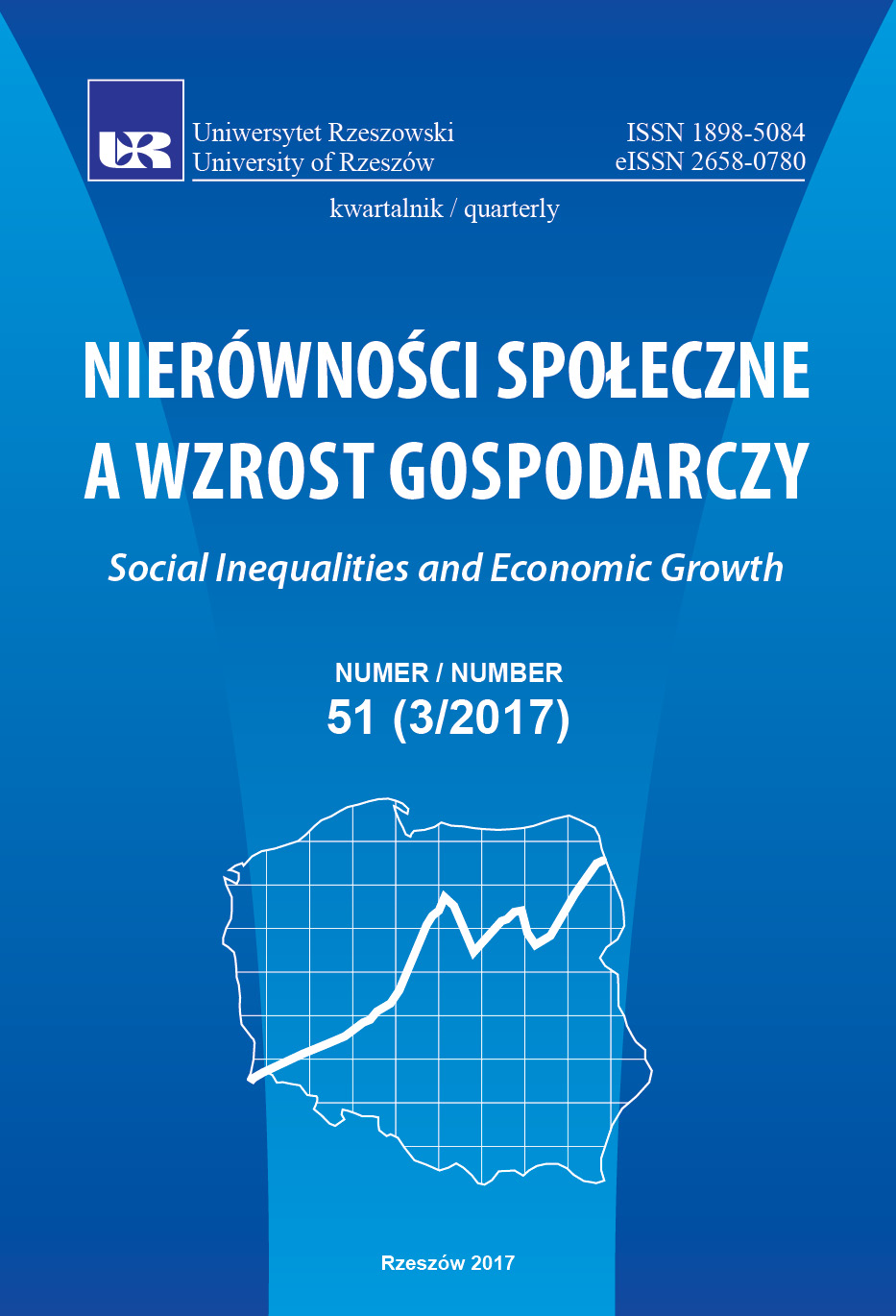Income inequality as barriers of human capital development in Poland
DOI:
https://doi.org/10.15584/nsawg.2017.3.15Keywords:
income inequalities, human capital, educationAbstract
The aim of this article is to diagnose the importance of income inequality for human capital accumulation in Poland. Theoretical considerations were based on the Galor and Zeira model of economic development which suggests that in the conditions of high income inequality and credit constraints investments in human capital are difficult due to the relatively low investment opportunities of the numerous poor. On the basis of literature review this article presents evidence to the recognition of income inequality as a cause of suboptimal educational investments in Poland. The focus was placed on the evidence of investment obstacles that poor social groups face. The article also points to the growing problem of educational horizontal inequalities, which in the process of higher education massification replace vertical educational inequalities. Such inequalities indicate barriers for the poor to achieve high quality education. On this basis it was concluded that the reduction of income inequality in Poland should contribute to the development of human capital. Finally, the article focuses on the positive consequences of income inequality for the accumulation of human capital manifested in a sphere of motivation. A certain level of income inequality seems to be necessary to trigger educational efforts. Yet, on the basis of current research it is impossible to identify characteristics of income inequalities which provide effective incentives for human capital investments. Therefore, further research in this area is needed.Downloads
Download data is not yet available.
Downloads
Published
2020-11-13
How to Cite
Bartak, J. (2020). Income inequality as barriers of human capital development in Poland. Social Inequalities and Economic Growth, 3(51), 181–190. https://doi.org/10.15584/nsawg.2017.3.15
Issue
Section
Articles
License
Copyright (c) 2017 University of Rzeszow

This work is licensed under a Creative Commons Attribution-ShareAlike 4.0 International License.


